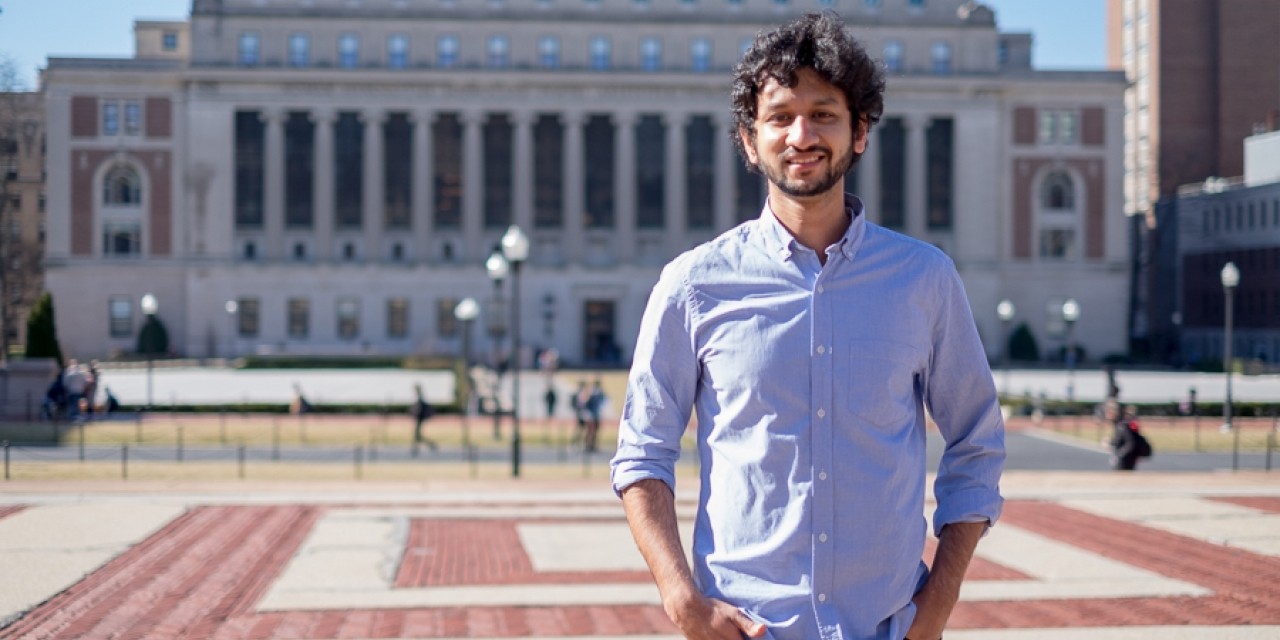Vijay Ramesh, PhD Candidate in Ecology, Evolution, and Environmental Biology

Where did you grow up?
Bangalore, India.
What drew you to your field?
Growing up in the concrete jungle that is Bangalore, I made every excuse to be outdoors as often as possible. I would not say I fell in love with wildlife as a kid, but I really liked being outside. As an undergraduate in engineering, I was not keen on the path I was pursuing, and decided to volunteer with the Wildlife Institute of India. There, I received my first opportunity to camera trap tigers in the wild and learn the intricacies of the tools and techniques involved in the study of wildlife. I was hooked thereafter.
How would you explain your current research to someone outside of your field?
I am working toward understanding how we can conserve wildlife for the future. Primarily, my research focuses on the effects of anthropogenic and climatic factors on birds in southern India. I study how deforestation, mining, and increases in temperatures, for example, affect the persistence of birds. This involves taking long walks in the forests to survey birds using binoculars, pouring over dusty yellow diaries from a century ago that contain information on these birds, and using advanced statistical measures to analyze the data I collect.
What resources or opportunities that Columbia provides have been most valuable to you?
The opportunity to network with scientists in fields such as philosophy, history, and art. Columbia also has allowed me to take classes at the American Museum of Natural History, the New York Botanical Garden, and the City University of New York. This has proved to be immensely useful in developing my ideas and the way I think.
Is there a common misconception about a topic in your field that you wish you could correct?
People often assume that fieldwork in the forests is a holiday. While it is enjoyable, it is hard work. Sometimes, you do not have access to hot water or cannot eat more than once a day.
Who is your hero of fiction?
I am a Star Wars nerd, and try to learn from Yoda.
Who are your heroes in real life?
My mother. While I was growing up in India, my mother was my mentor, pillar of support, and friend. I admired her for taking care of two boisterous kids, working ten-hour days, cooking for us, and still having the time to read us English novels and check out books from the library for us. I learn so much from the way she handles life.
Whom in your field do you consider a role model?
Since I joined this field, I have been in awe of the way Dr. Vijayakumar SP does science. He has been tremendously supportive and inspiring. At Columbia, Professor Don Melnick and Professor Ruth DeFries are my role models. I love the way they think about science, in completely different ways.
If you were to die and come back as a person or a thing, what would it be?
A scarlet finch, hands down.
What music have you been listening to lately?
Falkenbach, God is an Astronaut, Tame Impala, and Led Zeppelin.
What is your favorite blog or website?
Dynamic Ecology.
Where is your favorite place to eat on/around campus?
I love Jin Ramen.
